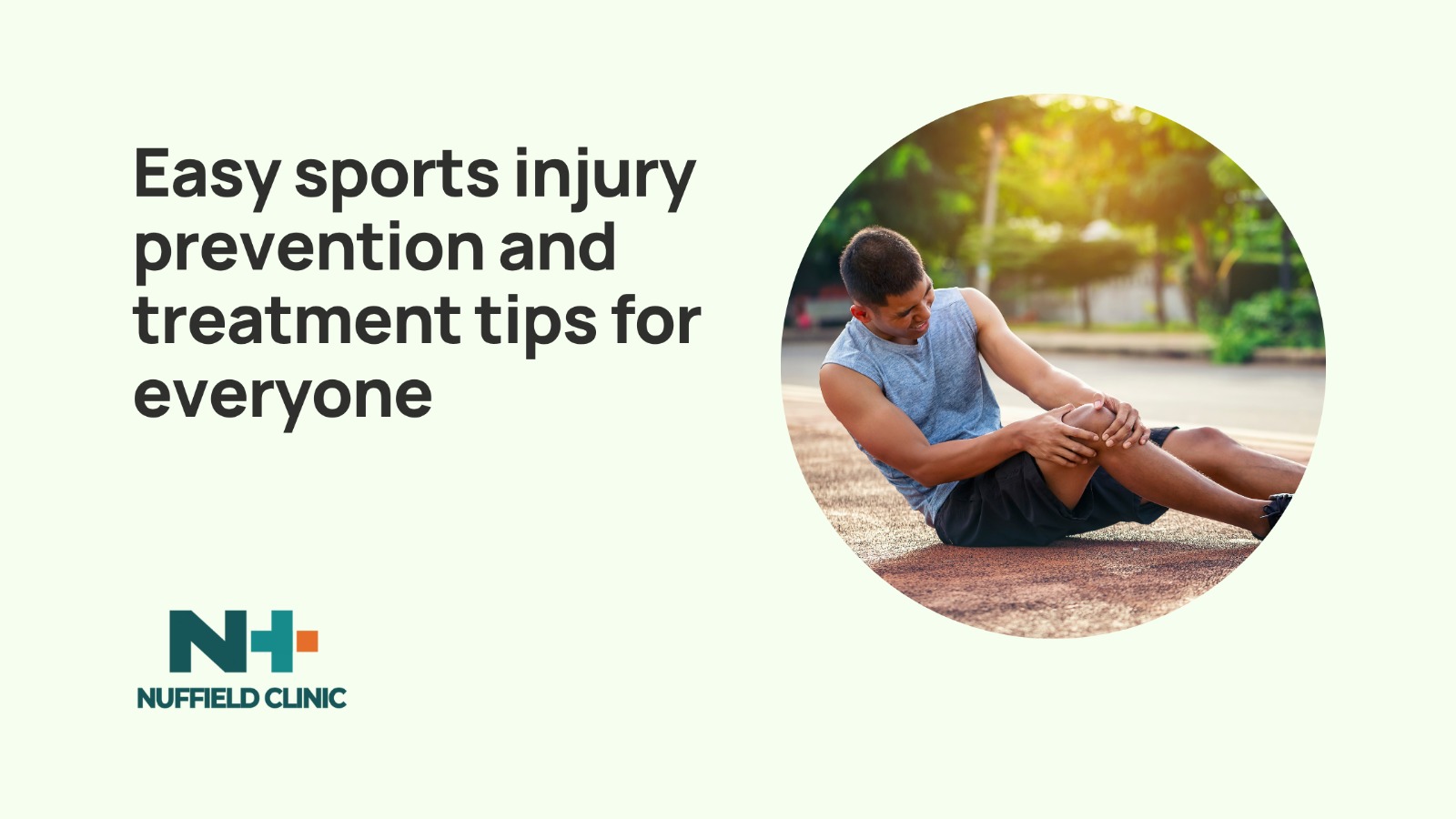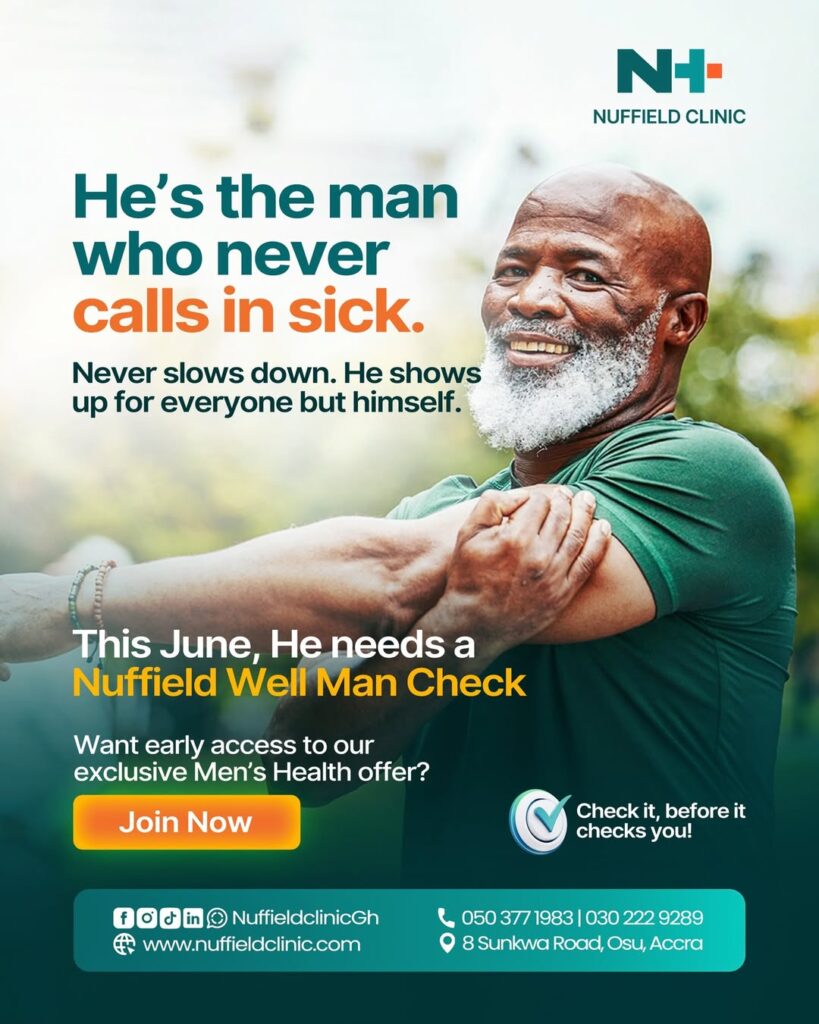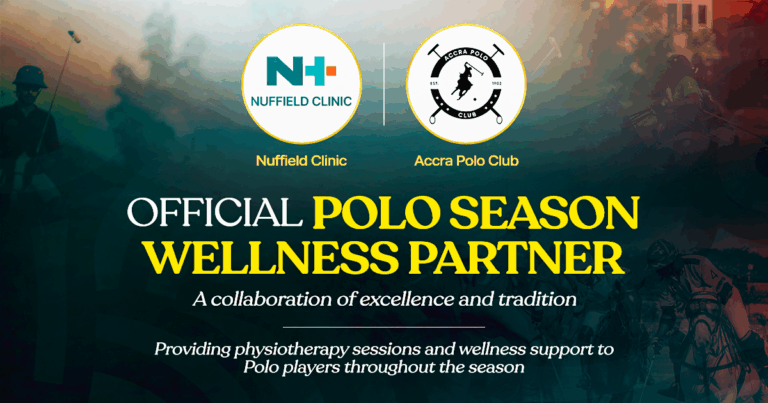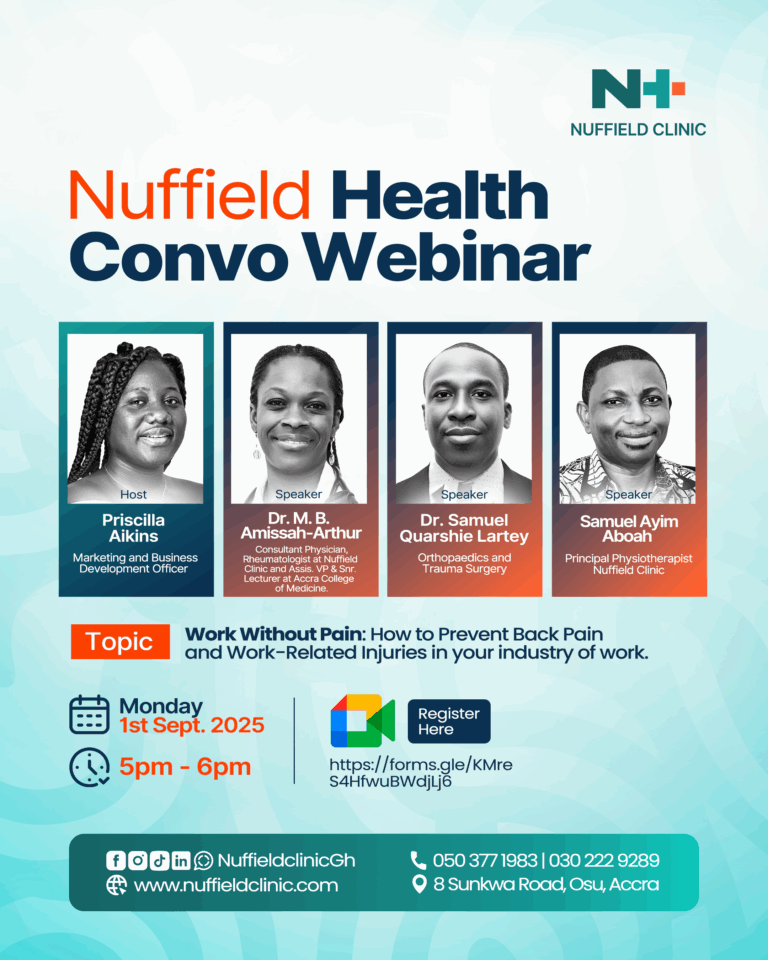Easy tips to prevent and treat sports injuries for everyone

What are some sports injury prevention tips, and how can they be treated effectively? Are you someone who enjoys jogging in the mornings, lifting weights after work, or playing football with friends on the weekends? Maybe you’ve recently decided to be more active, or your child just joined a sports team. If this sounds like you or someone in your family, then you’re exactly who this article is for.
At Nuffield Clinic, we know that leading an active lifestyle brings countless benefits: it boosts mood, improves heart health, builds strength, and helps prevent chronic illness. But here’s the part many people overlook: Physical activity, while great for the body, comes with its own set of risks.
This article is all about how to stay active while avoiding injury, and how to handle it smartly if an injury does happen. Backed by insights from respected sources including Johns Hopkins Medicine, Wright Physical Therapy, Connecticut Children’s, and Monadnock Hospital, we’ll walk you through easy, research-backed ways to protect your body. By the time you’re done reading, you’ll know the steps to take before, during, and after activity to keep your joints, muscles, and bones safe and strong—and where to turn when things don’t go as planned.
Let’s dive in.
The reality of exercises and injuries
The experts agree: most sports injuries are preventable. And that’s good news.
According to Johns Hopkins Medicine, with the proper precautions, you can significantly reduce the risk of getting hurt while exercising or playing sports. Monadnock Hospital puts it this way: “Preventing exercise injuries is essential for active folks at all levels.”
So why do people get injured in the first place?
Injuries often happen due to poor training habits, skipping warm-ups, overuse, or using the wrong equipment. Other times, it’s about wearing old shoes, training too hard too fast, or just not knowing the best way to move.
From strains and sprains to joint pain, dislocations, fractures, and shin splints, sports injuries come in many forms—but most of them start with simple mistakes.
Prevention is better
What can you do today to avoid getting injured tomorrow? Plenty.
- Start with a plan: Building a balanced fitness routine that includes cardio, strength training, and stretching is one of the most effective ways to prepare your body. Alternating between different muscle groups on different days gives your body the chance to recover and grow stronger.
- Warm up properly: Warming up isn’t just a nice-to-have. It preps your muscles, improves flexibility, and lowers your risk of injury. A good warm-up could be as simple as brisk walking or dynamic stretches. And don’t skip the cool-down, it should take twice as long as the warm-up, according to both Johns Hopkins and Monadnock Hospital.
- Stretch smartly: Stretching at the end of each workout helps prevent tight muscles and improves long-term performance. Stretch slowly, stop at the point of tension (not pain), and hold for up to 20 seconds.
- Hydrate: Dehydration can lead to muscle cramps, dizziness, or worse. Drink plenty of water before, during, and after activity, especially in Ghana’s warm climate.
- Wear the right gear: Whether it’s the right pair of shoes or a properly fitting helmet, equipment matters. Check your gear regularly and replace worn-out items.
- Learn the right techniques: Working with a coach or trainer can help you avoid movements that strain your joints. “Perfect practice makes perfect,” says Johns Hopkins. We agree.
- Listen to your body: Pain is your body’s alarm system. Don’t push through it. Rest when you’re tired. Avoid vigorous exercise when you’re sick or still recovering from a previous injury.
- Return to activity gradually: If you’re coming back from a break, start slow. Experts recommend beginning at 50% of your previous activity level and increasing by no more than 10% each week.
- Choose your surface wisely: Avoid hard or uneven grounds like concrete or sloped streets. Stick to level, shock-absorbing surfaces where possible.
- Eat well: Proper nutrition fuels performance and recovery. This is especially important for growing children and teens.
- Strength and balance training work wonders: Studies show that strength training can reduce injury risk by up to 68%, and balance exercises (like single-leg stands or stability ball drills) can cut the risk of sprains by 45%.
What to do when injuries happen
Despite your best efforts, injuries can still occur. When they do, early action makes all the difference.
The RICE method: Rest, Ice, Compression, Elevation, is a great place to start for most minor injuries.
- Rest: Stop any activity that worsens the pain.
- Ice: Use a cold pack wrapped in a towel for 20 minutes at a time. Never apply ice directly to the skin.
- Compression: Use an elastic bandage to reduce swelling, but don’t make it too tight.
- Elevation: Raise the injured area above heart level to minimise swelling.
For pain, over-the-counter anti-inflammatory medicine like ibuprofen can help, but always follow the directions or speak with a healthcare provider.
Most importantly, don’t self-diagnose. If the pain is severe, if there’s swelling or deformity, or if you simply can’t bear weight on the injured part, get medical attention immediately.
Even if it seems minor at first, lingering pain or weakness may point to a deeper problem. At Nuffield Clinic, our orthopaedic and sports injury specialists can assess your condition through physical exams and imaging like X-rays, CT scans, or MRIs.
Recovery is just as important as prevention
Treating an injury doesn’t stop with the pain going away. Proper rehabilitation is essential to restore full strength, flexibility, and function, and to prevent reinjury.
At Nuffield Clinic, our personalised rehabilitation programs are designed to guide you safely back to full activity. From physiotherapy to advanced treatments like cellular therapy and orthopaedic consultations, we offer a comprehensive recovery path tailored to your needs.
For some injuries, non-surgical options such as physical therapy, rest, and medication may be enough. For more serious conditions, like torn ligaments or complex fractures, surgery may be necessary. No matter the approach, recovery should never be rushed.
Remember: the goal is not just to feel better but to heal completely.
Nuffield Clinic in Osu, Accra, offers personalised, proactive care to help you prevent injuries, manage pain, and recover from surgery. Our expert team provides orthopaedic consultations, physiotherapy, sports injury rehab, rheumatology, imaging, lab services, health screening, nutrition advice, and urgent care, all supported by advanced technology.
Visit us at 8 Sunkwa Road, Osu – Accra or book an appointment by calling +233 (0) 302 229 289 or +233 (0) 50 377 1983. For existing patients, reach us on +233 (0) 20 811 2100 or email info@nuffieldclinic.com. We’re open Monday to Friday, 9 AM – 5 PM, and Saturday, 9 AM – 2 PM.







